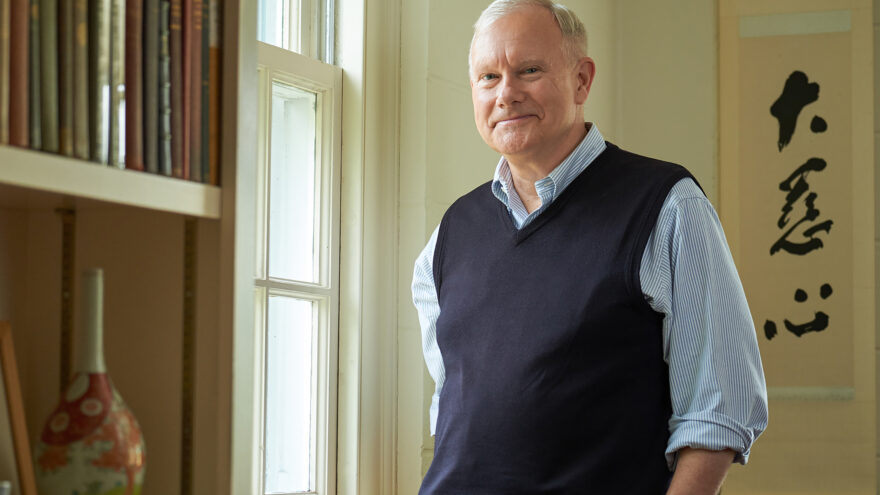I hate to start with a negative observation, but it seems like language learning across higher education is threatened.
There’s no doubt that the field is changing. Look at the statistics—more than 650 programs and departments in languages have closed across the country between 2013 and 2016. This is a bad trend that doesn’t bode well for a country that needs to reach out to the rest of the globe instead of closing itself off. Oddly, we also see it as an opportunity for Middlebury, because we are a place that has done this for a long time. In the Language Schools, we have 105 years of state-of-the-art, gold-standard teaching in languages. But . . .
What we’ve done in the past can’t be enough.
Exactly. Our heritage pedagogy—Language-Pledged face-to-face teaching—will continue to be at the heart of what we do, but we must innovate.
In what way?
For over a year, we’ve been facilitating a series of conversations with our directors, and what has arisen is the idea of a “languages-and-cultures incubator.” The idea is to figure out a way to use our resources—the Schools Abroad, the Institute, the Language Schools, departments of language and culture at the College—to create the synergies that don’t currently exist because these resources tend to be siloed. It would function as a place to aggregate under one structure all of the amazing languages and culture resources we have across Middlebury.
Leading to innovation across the whole.
Yes, but I believe it will also make us a more efficient organization. I’d like for us to think about how we can facilitate regular dialogue among, say, the four Arabic programs across the institution. How can we create assessments and curricular articulation that would allow students to move seamlessly between those programs?
So how is this achieved?
As soon as I took this job, I was determined to hold a language summit, bringing together all of the representatives from the different areas of language teaching. It begins here. And as this incubator takes shape, I can envision us hosting an academy for language teaching, bringing together faculty from all our entities, where we could meet at the beginning of each summer. This kind of intentionality needs to happen at the institutional level, not in any one area.
I’d like to come back to how this will foster innovation . . .
Thanks for asking. Here’s a great example. The Italian Department at the College recently migrated its textbook to a custom online platform that features videos, grammar exercises, and the like. I talked with the director of the Italian School and my colleague Carlos Vélez spoke with the director of the Schools Abroad in Italy, and they are all now collaborating on this project, called “MidItaliano.” When it’s completed, it will be a Middlebury-authored online pedagogical tool for at least introductory and intermediate Italian. And it will be used in all three locations.
At it doesn’t have to be a one-off project.
Exactly! If we had something like this languages-and-cultures incubator, we could scale a project like this and have a Middlebury-authored open-software tool for each language, which could be used by anyone who wanted a very intensive, high-quality set of tools for teaching.
Ok, I have a quick digression. How does the Language Pledge work in the 21st century? Do you take away smartphones at the beginning of each session?
No, you can’t, and we don’t, and we don’t think that’s productive. We realize that the pledge needs to engage with 21st-century realities. The pledge isn’t a goal; it’s a means to an incredible end. No one else provides high-quality language instruction with every aspect of life convened in language. If students didn’t adhere to the pledge, they’d be cheating themselves, and they’d be left behind. We also know that many students live in a completely multilingual environment now. For the advanced students, once they’ve mastered a language—by adhering to the pledge—there are advantages to not being punitively restricted. In life, they will be cultural intermediaries, and one needs to learn how to do that as well.

Leave a Reply